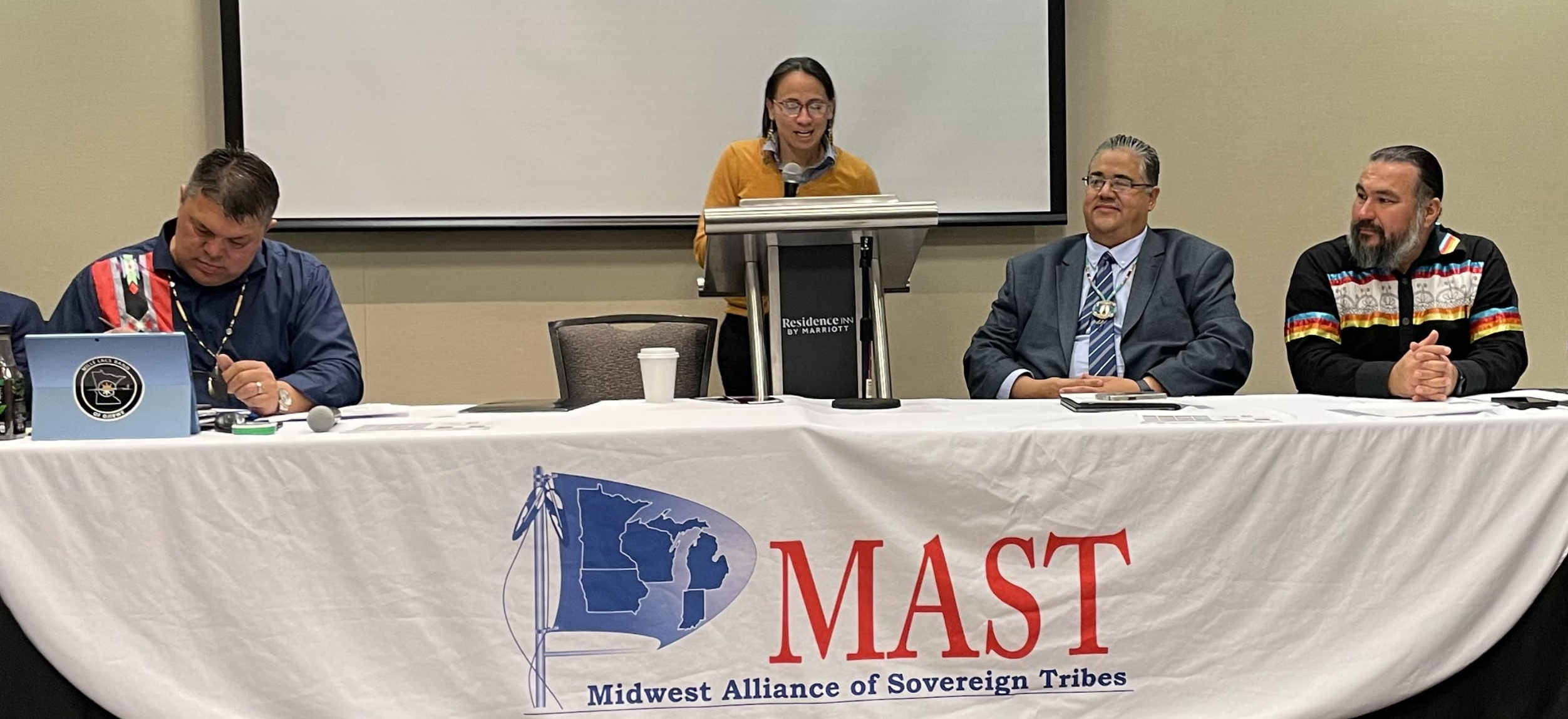
- Details
- By Levi Rickert
WASHINGTON — Members of the Midwest Alliance of Sovereign Tribes (MAST) gathered this week in Washington, D.C. for the organization's annual Impact Week. The event ran from Monday to Thursday at the Residence Inn Washington, DC National Mall.
In addition to meetings at the host hotel, MAST members visited Capitol Hill to discuss issues and concerns important to their respective tribes.
Established in 1996, MAST represents 35 sovereign tribal nations across Minnesota, Wisconsin, Iowa, and Michigan, collectively advocating for nearly 140,000 American Indian people.
This year’s Impact Week carried particular significance as tribes navigate policy shifts following the presidential administration change in January. Since President Donald Trump took office, executive orders and other directives have introduced new challenges for tribal nations.
MAST members have voiced concerns over potential losses of federal contracts and the effects of government funding cuts on tribal colleges and universities.
“We must unapologetically lead with our Indigenous truths,” MAST President Virgil Wind, chief executive of Mille Lacs Band of Ojibwe, said as he opened the week on Monday morning. “Let us remember that our greatest strength is not found in what divides us, but in what binds us, our shared history, our shared responsibility, and our shared hope for the future.”
Rep. Sharice Davids, a four-term member of the House of Representatives, who represents Kansas’ 3rd congressional district, addressed the MAST conference on Monday morning. Rep. Davids is a Democrat and a tribal citizen of the Ho-Chunk Nation headquartered in Wisconsin.
Davids discussed the challenges and accomplishments in advocating for Indian Country in Congress. She highlighted the $13 billion allocated in the bipartisan infrastructure law for Indian Country that was a product of the Biden administration, focusing on climate resilience, transportation, and broadband access.
She also emphasized the importance of advance appropriations for Indian Health Service (IHS) to ensure Indian Country obtains good healthcare.
Davids talked about the president’s executive order released last week Thursday that puts in motion the dismantling of the U.S. Department of Education.
“Dismantling something is not the path to improving it, so we have to push back because of our Bureau of Education (BIE) schools. Those efforts are vital to the education of our Native youth, Davids said.
“And, do we want to improve these programs? Absolutely, but doing away with those programs is just not going to get us there,” she continued.
National Congress of American Indians executive director Larry Wright, Jr. (Ponca Tribe) said the White House has been very quiet when it comes to addressing Indian Country issues.
“It’s become increasingly clear how fragile our progress can be when the executive branch’s decisions are made without tribal consultation and a lot of times without regard to the U.S. Constitution,” Wright said.
“What’s critical for you as tribal leaders in your respective states is to really lean in on your members of Congress, Democrats and Republicans, especially Republicans,” Wright continued.
More Stories Like This
Native News Weekly (August 25, 2024): D.C. BriefsNative Bidaské: The Illusion of Freedom and the Myth of America 250, Leonard Peltier Speaks Out
Monday Morning (March 2, 2026): Articles You May Have Missed This Past Weekend
Native News Weekly (March 1, 2026): D.C. Briefs
Scope Narrowed, Report Withheld: Questions Mount Over Michigan Boarding School Study
Help us defend tribal sovereignty.
At Native News Online, our mission is rooted in telling the stories that strengthen sovereignty and uplift Indigenous voices — not just at year’s end, but every single day.
Because of your generosity last year, we were able to keep our reporters on the ground in tribal communities, at national gatherings and in the halls of Congress — covering the issues that matter most to Indian Country: sovereignty, culture, education, health and economic opportunity.
That support sustained us through a tough year in 2025. Now, as we look to the year ahead, we need your help right now to ensure warrior journalism remains strong — reporting that defends tribal sovereignty, amplifies Native truth, and holds power accountable.
 The stakes couldn't be higher. Your support keeps Native voices heard, Native stories told and Native sovereignty defended.
The stakes couldn't be higher. Your support keeps Native voices heard, Native stories told and Native sovereignty defended.
Stand with Warrior Journalism today.
Levi Rickert (Potawatomi), Editor & Publisher


